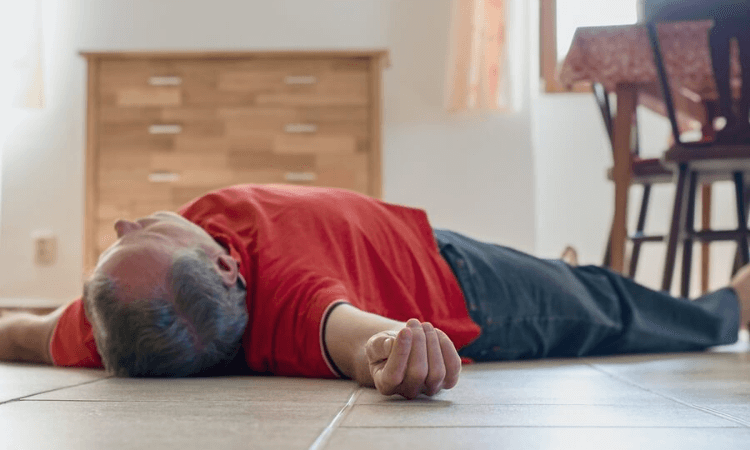
Flexeril (cyclobenzaprine) is a muscle relaxer that works by blocking pain sensations sent to the brain. Flexeril is used to treat musculoskeletal conditions, including pain, injury, or spasms. Using muscle relaxers such as Flexeril and alcohol together can induce profound sedation, impaired cognition and motor function, chemical dependence, and accidental death.
Moreover, a person who uses these two substances is at an increased risk for respiratory depression and overdose, falls and injuries, auto accidents, seizures, and more. Both muscle relaxers and alcohol depress or inhibit activity in the central nervous system (CNS). This combined impact can lead to numerous risks, and under no circumstances should they ever be taken together.
What Are Muscle Relaxers?
Muscle relaxers (spasmolytics) are prescription medications that affect muscle function and decrease muscle tone. They may be used to relieve symptoms such as muscle spasms and pain, and to reduce muscle contractions in a variety of neurological conditions. They can help a person achieve greater mobility and, for some, provide relief from insomnia that results from these disorders.
The effects of muscle relaxers are caused by depression of the CNS and reduction of activity in the muscles. Muscle relaxers are not the preferred method for treating chronic disorders, such as low-back pain, due to their potential for misuse, dependence, and side effects. Instead, they are most beneficial when used for acute injuries.
Flexeril is among the most frequently abused muscle relaxers. However, the following are also commonly abused:
- Carisoprodol (Soma)
- Cyclobenzaprine (Amrix)
- Dantrolene (Dantrium)
- Metaxalone (Skelaxin)
- Methocarbamol (Robaxin)
- Tizanidine (Zanaflex)
Side Effects
The side effects of Flexeril will vary somewhat between different doses and from person to person, but, in general, they include the following:
- Depression
- Drowsiness
- Dizziness
- Impaired motor skills
- Fatigue and weakness
- Impaired cognition
- Hypotension
- Nausea
- Vomiting
- Accelerated heart rate
- Impaired vision
- Rash
Muscle relaxers can make it challenging for a person to stay alert and think coherently, resulting in impairments to thought processes and decision-making capabilities. When used as directed by a physician, muscle relaxers are generally considered safe. However, when used in combination with alcohol or other drugs, they can have hazardous and sometimes life-threatening effects.

Alcohol Abuse
Although alcohol might initially make people feel more talkative and social as the result of an increase in dopamine, this stimulating effect is misleading and only temporary. When consumed in excessive amounts, alcohol can dramatically reduce activity in a person’s CNS and impede their ability to function correctly.
Alcohol abuse can result in the following symptoms:
- Abdominal pain
- Distorted vision
- Anxiety and depression
- Confusion
- Dizziness
- Impaired cognition
- Impaired motor skills
- Nausea and vomiting
- Impulsivity
- Poor decision-making
- Memory problems
- Sedation
Many of these effects are noticeably similar to those associated with the use of muscle relaxers. This similarity of effects is the main reason why it is so risky to mix these substances, as it results in an intensification of CNS depression.
The Risks of Combining Muscle Relaxers and Alcohol

The CNS depression and sedation produced by muscle relaxers can become hazardous when intensified by the effects of other intoxicating substances, such as alcohol, opioids, or benzodiazepines. The National Institute on Alcohol Abuse and Alcoholism (NIAAA) reports that consuming alcohol in combination with muscle relaxers may produce the following adverse reactions:
- Drowsiness
- Dizziness
- Increased risk of seizures
- Increased risk of overdose
- Slow or labored breathing
- Irregular heart rate
- Impaired motor control
- Unusual or erratic behavior
- Memory impairment
One of the greatest risks of this combination is severe motor impairment and loss of coordination and equilibrium. Together, the combined use of Flexeril and alcohol can make it difficult for a person to walk correctly and balance. This effect can result in a fall, especially when compounded by other symptoms such as dizziness and impaired vision.
Injuries that are caused by these effects can be very severe and even life-threatening. Motor impairment also makes it extraordinarily dangerous to drive a car or operate heavy machinery. Even when the two substances are used separately, they can slow a person’s reaction time and impair their perception, decision-making abilities, and cognition.
When Flexeril and alcohol are used in combination, these effects may become even more pronounced and intense. The profound sedation and respiratory depression that is caused by the combined use of these two drugs places an individual at a higher risk of overdose, a medical emergency that requires immediate assistance.
The Drug Abuse Warning Network (DAWN) reports that nearly one in five emergency department visits related to the misuse of muscle relaxers also involved alcohol. Overdose from Flexeril and alcohol can lead to death. If you suspect that you or a loved one is having an overdose, please call 911 immediately.
Treatment for Alcohol or Drug Abuse
Muscle relaxers such as Flexeril have the potential for abuse and addiction, as does alcohol. Abusing either of these substances places a person at risk of dependence, and abusing them in conjunction increases this risk even further.
When a person abuses one substance, their inhibitions are lowered, and their ability to reason is compromised. These are conditions that may make it more likely that they will abuse another substance and use it in higher amounts. Again, these are behaviors that heighten the risk of developing an addiction.
If a person is addicted to one or both of these drugs, treatment in a specialized rehab center should be sought to reduce the likelihood of future incidences of substance abuse and minimize all risks involved. Seeking treatment for the misuse of muscle relaxers and alcohol is essential to prevent further health complications and avoid life-threatening circumstances.
Recovery in Tune offers outpatient treatment comprised of evidence-based services clinically-proven to be vital for the recovery process. These services include psychotherapy, counseling, group support, health and wellness programs, aftercare planning, and more.
We are committed to helping our clients reclaim their lives and free themselves from the grip of addiction for good! Contact us today to discuss treatment options and find out how we can help!